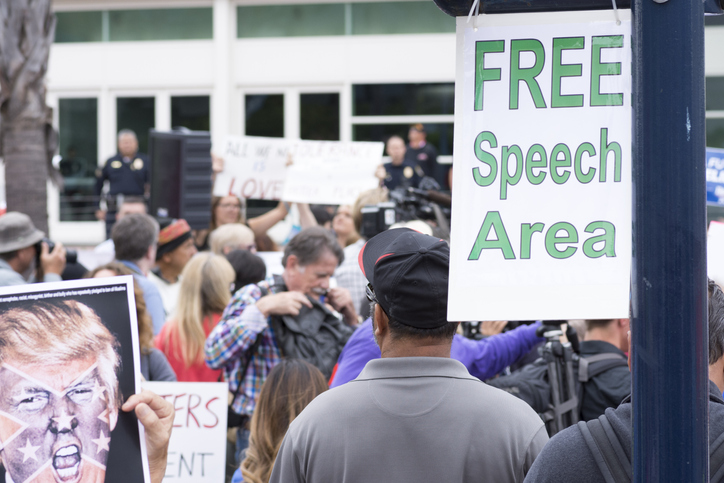By Ben Zeisloft
Professors launched a nonprofit to promote free expression on college campuses.
The Academic Freedom Alliance describes itself as a consortium of “college and university faculty members who are dedicated to upholding the principle of academic freedom.” Their members range “across the political spectrum” and recognize that “an attack on academic freedom anywhere is an attack on academic freedom everywhere.”
In addition to defending academics’ freedom of thought in their work as professors and citizens, the Academic Freedom Alliance’s members will “aid in providing legal support to faculty whose academic freedom is threatened by institutions’ or officials’ violations of constitutional, statutory, contractual, or school-based rights.”
Members of the group “pledge to support fellow AFA members whose rights have been violated or are threatened.”
Keith Whittington, a politics professor at Princeton University who chairs the organization, said in a press release that “AFA will counteract the pressure on school administrators to crack down on controversial views and will provide faculty with strength in numbers to defend their academic freedom.”
“The AFA’s defense will not depend on a faculty member’s viewpoint, nor will it endorse the content of what they express,” he added. “It will simply defend their right to expression.”
Members range ideologically from Cornel West of Harvard University to Robert P. George of Princeton University, a leading conservative intellectual. Most of America’s premier universities — including Stanford University, Yale University, and MIT — are represented.
Speech First President Nicole Neily told Campus Reform that she is “absolutely delighted by the launch of the Academic Freedom Alliance — a cohesive, strong voice defending the rights of professors has been sorely needed in this fight.”
“They’ve assembled a spectacular coalition of talent from across the political spectrum, and they have real legal firepower to back them up,” Neily explained. “So much of the discussion about campus speech centers around students, yet professors are frequently targeted by programs like bias response teams.”
Neily looks forward to “complementing the efforts of the AFA in the future.”
Campus Reform has reported on several recent instances of professors receiving sanctions for teaching in a manner that was interpreted by students as offensive.
For instance, Richard Taylor of St. John’s University was terminated after students found his question about slavery to be racist.
In another incident, a business professor at the University of Southern California was placed on leave after he said a Chinese filler word that sounds similar to an American racial slur.
Following the 2020 election, professors lobbied university administrators to permanently ban former Trump officials from serving as faculty members on their campuses.
Campus Reform reached out to the Academic Freedom Alliance for comment, but did not receive an answer.
Originally published by Campus Reform. Republished with permission.
